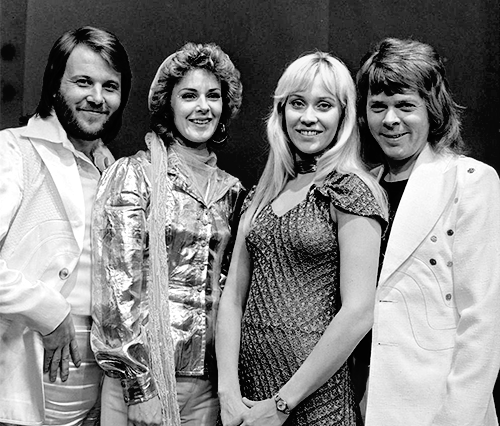The Eurovision Song Contest and the Nordic Bloc
Approaches to this supposedly apolitical, European cultural event can shed light on alliances and deep-seated conflicts the world over.
Summary: The Eurovision Song Contest encapsulates the complexity of culture as well as the world it reflects by being many opposing things all at once. Despite being resolutely apolitical, the contest is dogged by national, regional and international politics. Despite appearing to be firmly European, its net reaches much wider than Europe. It is both highly experimental and deeply conservative. The Nordic countries have alternately been a voting bloc (the so-called “Viking alliance”) or strict competitors. They have enjoyed some success such as between 1999 and 2023 during which time they collectively won a third of the votes.
The Eurovision Song Contest
The Eurovision Song Contest (ESC), launched in 1956 by the European Broadcasting Union (EBU), is the world's longest-running televised music competition. It has played a significant role in advancing live transnational TV broadcasting technology and has at the same time created a musical memory structure in postwar and post-wall Europe. Initiated just 11 years after the Second World War ended, the contest brought together countries that had recently been involved in a devastating war to compete for the best European song. This peaceful competition served as a symbol of the postwar peace process, where former enemies could interact courteously and vote for each other's performances. Unlike international sports events, the ESC is won not by defeating others, but by appealing to them and earning their votes. The song that garners the most votes from participating countries wins. As no-one can vote for their own entry, they have to find others to like.
In the inaugural contest in 1956, seven countries participated. Over time, the contest expanded to include countries beyond Europe, e.g. from the Middle East and North Africa. Israel joined in 1973, Turkey in 1975, and Morocco participated once in 1980. Most of the Nordic countries joined the song contest in the early years. Denmark joined in 1957, Sweden in 1958, Norway in 1960, and Finland in 1961. Only Iceland came late to the party, entering in 1986.
The European Song Contest is run by the European Broadcasting Union, which is an association which promotes the interests of public service media. It has 113 member organizations in 56 countries, mainly from within Europe but also elsewhere.
In the first 35 years the contest took place in a Europe divided by the Cold War. It was only after the Cold War ended, that countries in Eastern Europe and the former Soviet Union could participate. Between 1993 and 2008, 23 countries from previously communist Europe entered the contest, including nine republics from the former Soviet Union. Paul Jordan argued in his article "From Ruslana to Gaetana. Performing 'Ukraineness' in the Eurovision Song Contest" that the competition provided one of the first international platforms for these countries to represent their cultural identities after the Soviet Union's break-up, making the ESC an important platform for cultural diplomacy.
Throughout the years, 52 different countries, including Australia, Georgia, and Azerbaijan, have participated in the contest. The contest has been broadcast in various countries, including Brazil, Canada, Chile, China, New Zealand, Uganda, and the USA, attracting between 150 and 200 million viewers annually.
The Music of the Eurovision Song Contest: Easy to ridicule
In his book about post-1945 Europe, British historian Tony Judt characterized the ESC as a competition featuring "B-league crooners and unknowns from across the continent performing generic and forgettable material". He described the event as "so stunningly banal in conception and execution that it defies parody". Despite this, Eurovision showcases a diverse array of musical genres, from pop and schlager to ballads, disco, rock, dance, hip-hop, techno, country, folk, and opera. It has also launched the international careers of several renowned bands and artists.
The Swedish band ABBA rose to international prominence after their Eurovision performance of Waterloo in 1974. Similarly, Canadian singer Celine Dion's European breakthrough came when she won the contest for Switzerland in 1988 with Ne Partez Pas Sans Moi (Don't Leave Without Me). More recently, social media platforms like YouTube, Instagram, and TikTok have helped bands such as Italy's Måneskin and Ukraine's Kalush Orchestra, and songs like Snap (2021) and Chachacha (2023), gain global recognition through their Eurovision entries.
However, Eurovision is distinct from other song contests. It's a large-scale, extravagant, over-the-top media event known for its wild performances, creative choreographies, and unforgettable stage shows. Success in Eurovision relies not just on vocal talent or lyrical prowess, but also on the capacity to surprise. Memorable performances include Finnish Lordi's Hard Rock Hallelujah from 2006, Ukrainian Verka Serduchka's Dancing Lasha Tumbai from 2007, and Australian Kate Miller-Heidke's Zero Gravity from 2019.
More than a song contest: Discourse on places, history and issues

The ESC is, as Pedersen and Ren write in their article about Eurovision in Copenhagen in 2014, much more than a song contest. With an audience of more than 150 million viewers worldwide, it is also a platform where cities and countries can promote themselves. It is a context for discussing Europe and European affairs. And it is a battlefield, where ideas and ideals can be presented and contested. The ESC is officially non-political. Still, as Caterine Baker has written about in her discussion of Eurovision as “Gay Olympics”, the EBU, which arranges it, has used it to promote support for LGBTQ+ visibility, the celebration of multiculturalism, and peaceful interaction - despite conflicts between the participating states.
Over the years, several performances have also had political content and messages. In an article on voting bias in the Eurovision, “Douze points: Eurovisions and Eurodivisions in the Eurovision Song Contest”, Gad Yair has argued that the contest is a seismograph for exposing national trauma, historical conflicts, and general grudges that countries hold against each other. Over the years, several songs and performances have recalled European conflicts and brought them to life for TV audiences. In 2015, for example, Armenia entered with a song commemorating the centenary of the Armenian genocide where an estimated 1 million Armenians were killed by Ottoman military forces. The song was entitled Don’t Deny and soon became an object of much controversy. There are states that do deny the genocide, including Turkey and Azerbaijan. Azerbaijan requested that Armenia should withdraw the song. The EBU instead required that Armenia change the title, which they did. The song was entered under the title Face the Shadow, which did not mention denial but still implied that the event was not recognized.
In 2016, Ukraine entered a song, 1944, commemorating Stalin’s deportation of Crimean Tatars during the Second World War. Russia, which had annexed Crimea from Ukraine in 2014, complained to the EBU and accused Ukraine of politicizing the contest with references to the current conflict between the two countries. The EBU ruled that the song commemorated a historical event which was not against the contest’s rules, and the Ukrainian singer Jamala was therefore able to perform the song - and win. Countries presenting songs and performances with apparent political content are often asked to change the lyrics or else be excluded. The Georgian band Stephanie and 3G were excluded from the 2009 Eurovision in Moscow for a song that was believed to insult Russia’s president, Vladimir Putin. The Belarusian band Galasy ZMesta was excluded in 2021 for a song that was seen as a threat towards the democratic opposition in Belarus. In 2007, the Israeli band Teapack was asked to change the lyrics to their song Push the Button which was interpreted as a slander of the Iranian president Mahmoud Ahmadinejad. They made a few changes and went on to perform the song in Helsinki.
In recent years, many of the controversies surrounding the song contest have involved Israel and the conflict between Israel and Palestine. In 2019 when the Eurovision was held in Tel Aviv, several organizations and artists from Europe and beyond advocated for a boycott of the contest. While this did not happen, the conflict did become part of the show. The Icelandic band Hatari waved a banner in support of Palestine during the voting section of the show, and the American singer Madonna, who did one of the interval acts, brought two dancers on stage with her, one with a Palestinian flag and one with an Israeli flag sewn on the back of their jackets. In 2024, influenced by the war between Hamas and Israel which broke out in October 2023, organizations were advocating for an exclusion of Israel from the contest.
The Nordic Countries
The Nordic countries have done quite well in the ESC. Together, they have had 14 victories: seven for Sweden, three each for both Norway and Denmark, and one for Finland. With eight victories over the past 25 years, the Nordic region is the most successful region in recent times; they have won a third of the contests between 1999 and 2023.
There have been many accusations of buddy voting among the Nordic countries. Scholars studying the voting pattern in Eurovision have identified a “Viking alliance” of Nordic countries voting for each other. Sometimes Estonia is included in this alliance, and sometimes Ireland. Scholars have also shown that some Nordic countries benefit more from the alliance than others. Thus, Sweden receives a lot more votes from their Nordic neighbors than they give, and Finland and Iceland give a lot more votes to the other Nordic countries than they receive.
To ensure that the Nordic countries do not skew the contest too much, they cannot all be in the same semifinal. They must be distributed between the two semifinals, and since a country can only vote for other countries in its own semifinal, this makes it difficult for the Viking alliance to manifest itself. While the Nordic countries traditionally support each other, their attitudes towards each other are not always amicable. This was made particularly clear in 2023 when Sweden and Finland battled for first place in the contest. Sweden overwhelmingly won the Jury vote (and the contest), while Finland won the popular vote. Afterwards, fans battled on social media over who the rightful winner really was. In Finland, they do not believe it was Sweden.
Further reading:
- Catherine Baker, "The ‘Gay Olympics’? The Eurovision Song Contest and the politics of LGBT European Belonging", European Journal of International Relations, 23, 1 (2016), pp. 97-121.
- Gad Yair, "Douze points: Eurovisions and Eurodivisions in the Eurovision Song Contest. Review of two decades of research", European Journal of Cultural Studies, 22, 5-6 (2019), pp. 1013-1029.
- Morten Krogh Pedersen & Carina Bregnholm Ren, "“Much more than a song contest”. Exploring Eurovision 2014 as a Potlatch", Valuation Studies, 3, 2 (2015), pp. 97-118
- Paul Jordan, "From Ruslana to Gaetana. Performing ‘Ukrainianness’ in the Eurovision Song Contest", Contemporary Southeastern Europe, 2,1 (2015), pp. 110-135.
- Tony Judt, "Postwar: A history of Europe since 1945." (UK: Penguin Press, 2005).





